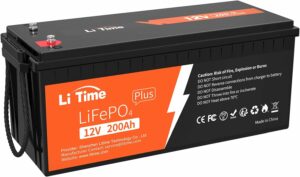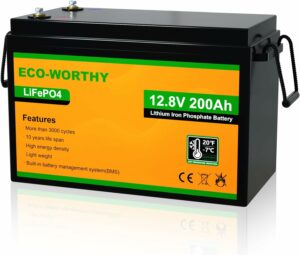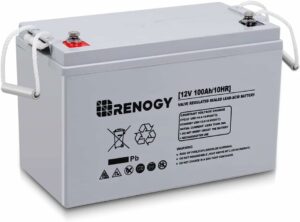Maintenance-Free Solar Battery
Introduction
In the dynamic landscape of renewable energy, the quest for efficient and sustainable power solutions has led to groundbreaking innovations.
One such advancement that stands at the forefront is the concept of a “Maintenance-Free Solar Battery.”
This cutting-edge technology represents a pivotal shift in the paradigm of solar energy storage, promising enhanced performance and a hassle-free and cost-effective user experience.
Provo Green Products embodies a beacon of trust in sustainable discoveries, offering choices that enhance your life and leave a positive mark on our planet.
Leveraging extensive expertise in manufacturing, construction, and various trades, we provide a solid foundation for sustainable living.
Our meticulous research process guarantees that our information about each product is precise and current, allowing you to make informed decisions.
Whether your interest lies in solar products, electric bikes, or other eco-friendly alternatives, our commitment to credibility ensures you have access to dependable insights, guiding your journey toward a more sustainable lifestyle.
Provo Green Products is your go-to destination for finding the right green products for your lifestyle.
Disclosure: We may earn a small commission if you click on one of our links. This will not affect the pricing of the product whatsoever.
Key Components of a Maintenance-Free Solar Battery
Maintenance-free solar batteries incorporate cutting-edge technologies and innovative design principles to ensure seamless operation without regular user intervention.
Understanding the core components of these batteries provides valuable insights into their efficiency and reliability.
Battery Type and Chemistry
- Its advanced battery type and chemistry are at the heart of a maintenance-free solar battery. These batteries often utilize lithium-ion technology, known for its high energy density, longer lifespan, and lower maintenance requirements than traditional lead-acid batteries. The chemistry employed is crucial in reducing self-discharge rates and enhancing overall performance.
Self-Regulating Systems
- Maintenance-free solar batteries integrate self-regulating systems that autonomously manage various aspects of their operation. These systems include built-in temperature sensors, charge controllers, and voltage regulators. The self-regulation ensures optimal charging and discharging cycles, protecting the battery from overcharging or deep discharging, which can compromise its lifespan.
Advanced Monitoring Technologies
- Maintenance-free solar batteries often incorporate advanced monitoring technologies to give users real-time insights into the battery’s performance. These may include integrated smart controllers with user-friendly interfaces, allowing users to track the battery’s state of charge, voltage, and temperature. Remote monitoring capabilities enhance the user experience by providing access to crucial data anywhere.
Efficient Heat Dissipation Systems
- Heat dissipation is a critical factor influencing the longevity and performance of solar batteries. Maintenance-free variants have efficient heat dissipation systems that prevent excessive heat buildup during charging and discharging cycles. This contributes to extended battery life and ensures consistent performance under varying environmental conditions.
Sealed and Robust Enclosures
- Unlike traditional batteries that may require periodic checks and maintenance of electrolyte levels, maintenance-free solar batteries are often sealed and maintenance-free. The robust enclosure design protects the internal components from environmental factors, making them suitable for various applications and reducing the risk of damage or deterioration over time.
Understanding these key components provides a comprehensive view of how maintenance-free solar batteries achieve their autonomy and reliability.
In the following sections, we’ll explore the tangible benefits these components bring to users, ranging from cost savings to environmental sustainability.
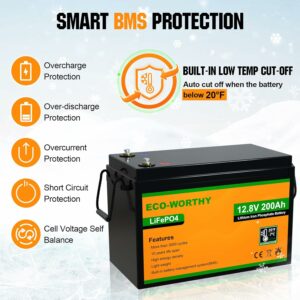
Benefits and Advantages
- Maintenance-free solar batteries offer many benefits beyond conventional energy storage solutions. These advantages address the practical concerns of end-users and contribute to the broader goals of sustainability and efficient energy utilization.
Cost Savings Over Time
- One of the primary advantages of maintenance-free solar batteries is their significant cost savings over time. Traditional batteries often incur additional expenses related to maintenance, monitoring equipment, and the need for replacement due to premature wear. Maintenance-free variants eliminate these ongoing costs, providing users with a more economically viable and sustainable energy storage solution.
Environmental Impact and Sustainability
- Embracing maintenance-free solar batteries aligns with a commitment to environmental sustainability. Reducing maintenance requirements means fewer resources expended regarding water usage, chemicals, and energy for regular checks and replacements. Additionally, the longer lifespan of maintenance-free batteries minimizes the environmental impact associated with frequent disposal and replacement of traditional batteries.
Increased Reliability and Performance
- Maintenance-free solar batteries are engineered for enhanced reliability and consistent performance. Integrating self-regulating systems ensures optimal charging and discharging, reducing the risk of overcharging or deep discharging that can compromise the battery’s functionality. This heightened reliability is particularly crucial in off-grid or remote areas where uninterrupted power supply is imperative.
Ease of Operation and User Experience
- Simplicity in operation is a hallmark of maintenance-free solar batteries. With advanced monitoring technologies and user-friendly interfaces, these batteries give users real-time insights into their energy storage system. This ease of operation not only makes the technology accessible to a broader audience but also encourages a seamless transition to renewable energy practices.
Adaptability to Diverse Applications
- The versatility of maintenance-free solar batteries makes them suitable for various applications. These batteries can adapt to diverse energy storage needs, from residential solar installations to industrial-scale projects. Their robust design and sealed enclosures make them resilient to various environmental conditions, further expanding their applicability.
As we explore the advantages of maintenance-free solar batteries, it becomes evident that these innovations meet users’ immediate needs and contribute to a more sustainable and resilient energy ecosystem.
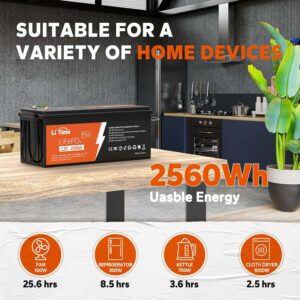
Comparison with Traditional Solar Batteries
Understanding the differences between maintenance-free solar batteries and their traditional counterparts is essential for evaluating the transformative impact of this innovative energy storage solution.
The following points illustrate the key distinctions and advantages of maintenance-free technology.
Highlighting Common Maintenance Requirements
- Traditional solar batteries, often based on lead-acid chemistry, demand regular maintenance to ensure optimal performance. This maintenance includes monitoring electrolyte levels, topping up water, and addressing issues related to sulfation and stratification. In contrast, maintenance-free solar batteries eliminate these labor-intensive tasks, offering a hassle-free and user-friendly alternative.
Efficiency and Longevity Differences
- Maintenance-free solar batteries, commonly leveraging lithium-ion technology, boast higher energy density and longer lifespans than lead-acid batteries. The inherent characteristics of lithium-ion chemistry contribute to reduced self-discharge rates and increased cycle life. As a result, maintenance-free batteries outperform their traditional counterparts regarding efficiency and longevity.
User Experience and Ease of Operation
- The user experience is a pivotal aspect of the comparison. Traditional solar batteries often require users to be well-versed in maintenance procedures, posing a barrier to entry for those unfamiliar with the intricacies of battery upkeep. Maintenance-free alternatives, with their advanced monitoring technologies and sealed designs, simplify the user experience, making solar energy storage accessible to a broader audience.
Environmental Impact
- From an environmental standpoint, the disparities are significant. Traditional lead-acid batteries involve sulfuric acid and lead, posing environmental risks during production and disposal. With their sealed enclosures and reduced maintenance needs, maintenance-free solar batteries contribute to a cleaner and more sustainable energy ecosystem, aligning with global efforts towards eco-friendly practices.
Operational Reliability
- The self-regulating systems embedded in maintenance-free solar batteries enhance operational reliability. These systems prevent common issues such as overcharging and deep discharging, safeguard the battery, and ensure consistent performance. Traditional batteries may be more susceptible to premature failure due to user-related errors without such safeguards.
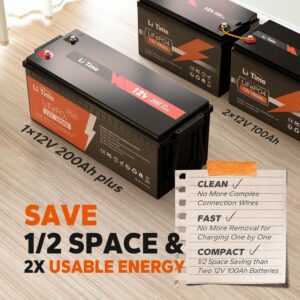
Future Trends and Innovations
The landscape of maintenance-free solar batteries is poised for continual evolution, driven by technological advancements, increasing demand for sustainable energy solutions, and a growing emphasis on efficiency.
Here are some key trends and innovations shaping the future of maintenance-free solar batteries:
Emerging Technologies in Maintenance-Free Batteries
- As research and development in battery technology progress, we can expect the emergence of novel materials and chemistries that further enhance the performance of maintenance-free solar batteries. Technologies such as solid-state batteries, replacing traditional liquid electrolytes with solid materials, promise to improve safety, energy density, and efficiency.
Integration of Artificial Intelligence (AI)
- The integration of artificial intelligence into maintenance-free solar batteries is a transformative trend. AI algorithms can optimize charging and discharging cycles based on usage patterns, weather forecasts, and other relevant data. This intelligent management enhances the battery’s efficiency, extends lifespan, and adapts to changing environmental conditions, making it a genuinely adaptive and intelligent energy storage solution.
Enhanced Energy Storage Capacities
- As the demand for renewable energy grows, there is a parallel need for higher energy storage capacities. Future maintenance-free solar batteries are expected to offer increased storage capacities, catering to larger-scale applications such as grid-level energy storage and industrial use. This expansion in storage capabilities will contribute to the scalability and versatility of solar energy solutions.
Improved Charging and Discharging Rates
- Research is ongoing to enhance maintenance-free solar batteries’ charging and discharging rates. Faster charging and discharging capabilities not only improve the responsiveness of the energy storage system but also make it more suitable for applications requiring rapid energy transfer, such as electric vehicles and emergency power systems.
Recyclability and Sustainable Manufacturing Practices
- An increasingly important trend in developing maintenance-free solar batteries is a focus on recyclability and sustainable manufacturing practices. Innovations in battery design and manufacturing aim to reduce the environmental impact by using eco-friendly materials, improving recycling processes, and minimizing the carbon footprint associated with battery production.
Integration with Smart Grids and Energy Management Systems
- The future of maintenance-free solar batteries involves seamless integration with smart grids and energy management systems. This integration enables dynamic communication between the energy storage system and the grid, optimizing energy flow, balancing demand and supply, and contributing to the overall stability and reliability of the electrical grid.
As maintenance-free solar batteries continue to evolve, these trends and innovations hold the potential to revolutionize how we harness and store solar energy.
The ongoing pursuit of efficiency, sustainability, and intelligence in energy storage solutions will shape a future where clean and reliable power is more accessible and impactful than ever.
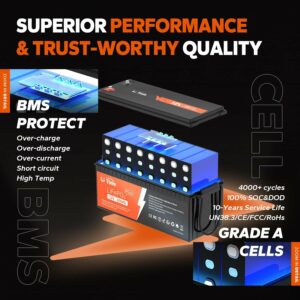
Conclusion
The advent of maintenance-free solar batteries heralds a transformative era in renewable energy storage.
Their elimination of routine maintenance tasks, integration of advanced technologies, and alignment with sustainability goals mark a significant leap forward.
The benefits, ranging from cost savings to reduced environmental impact, position maintenance-free batteries as catalysts for the widespread adoption of solar energy.
As we navigate towards a future of increased energy demands and environmental consciousness, these innovations offer a glimpse into a more accessible, reliable, and eco-friendly energy landscape.
With ongoing research pushing the boundaries of efficiency and intelligence, the trajectory of maintenance-free solar batteries points towards a sustainable future where clean energy solutions empower individuals and industries alike.
Stay in Touch!
I’am a dedicated entrepreneur with many years of experience and an integrity-driven individual who is highly motivated to succeed. Leveraging extensive expertise in manufacturing, construction, and various trades, we can provide a solid foundation for sustainable living. Our meticulous research process guarantees that our information about each product is precise and current, allowing you to make informed decisions. A deep understanding of business operations empowers me to consistently implement improvements that result in ongoing success. Visit site.

